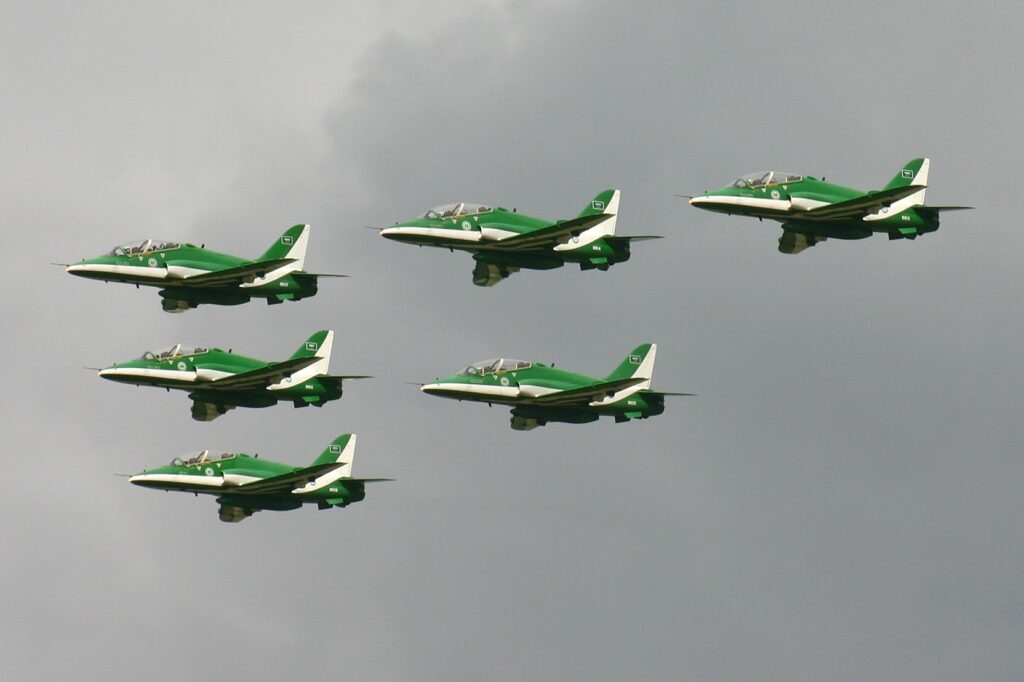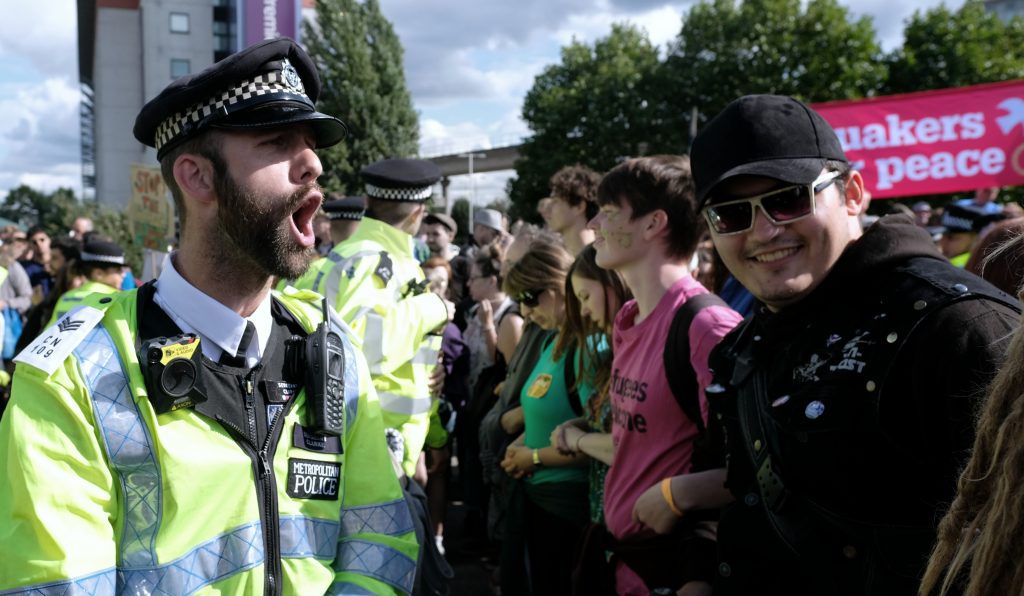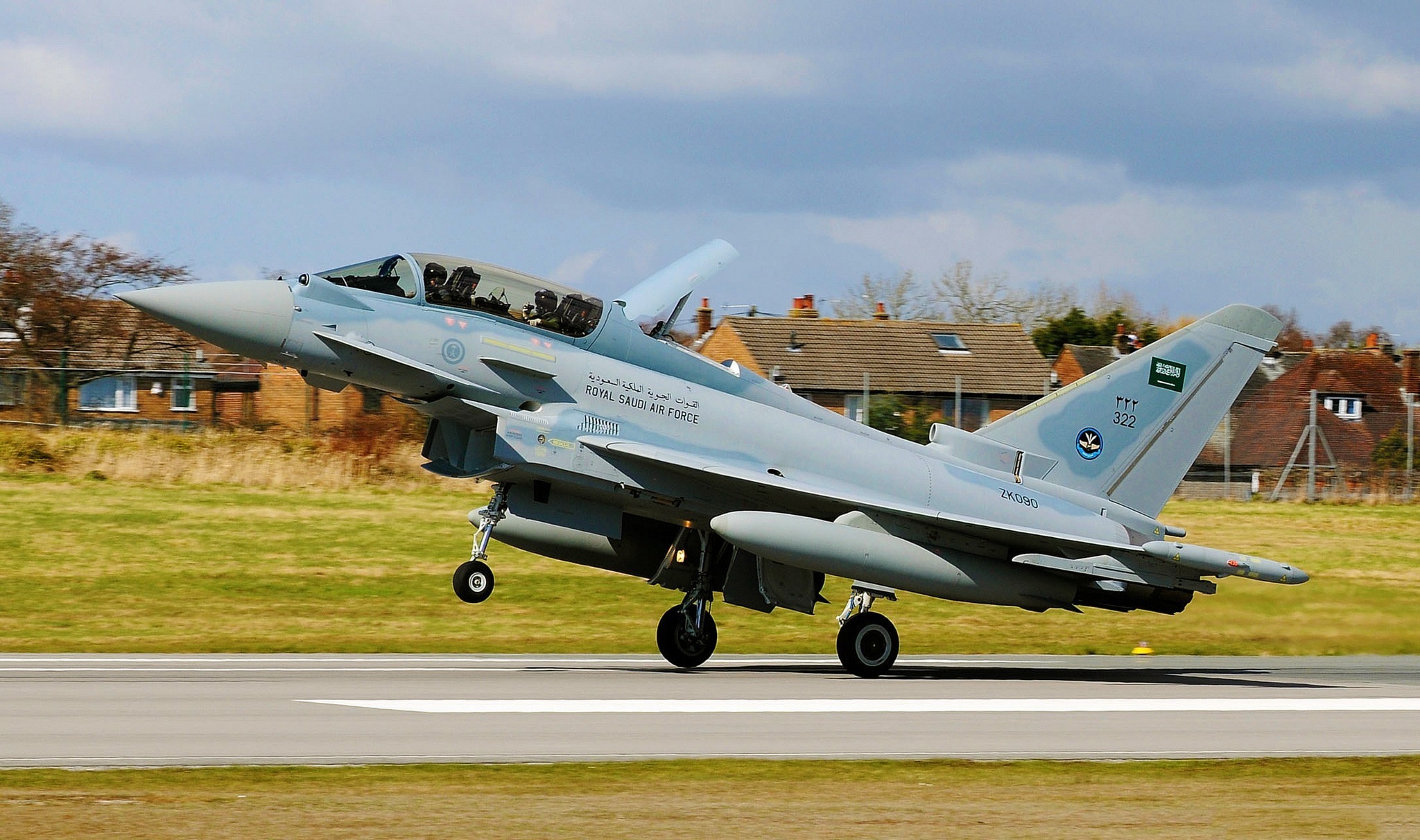Britain exported over £11-billion worth of arms around the world in 2019 but UK ministers claim this trade is properly administered in a mantra that goes like this:
“HM Government takes its export control responsibilities very seriously and operates one of the most robust arms export control regimes in the world. We consider all export applications thoroughly against a strict risk assessment framework and keep all licences under careful and continual review as standard.”
It adds: “HM Government will not grant an export licence if to do so would be inconsistent with the Consolidated EU and National Arms Export Licensing Criteria”.
These contentions are not true and the stark, unavoidable reality is that the British government and its weapons manufacturers, between whom there is a symbiotic relationship, repeatedly violate domestic law and international agreements on arms controls with no repercussions.
The British arms industry, politicians, the military and intelligence services can all essentially do what they want, with limited scrutiny and virtually no accountability.
Under its official arms export criteria, the UK is not meant to grant a licence “if there is a clear risk that the items might be used for internal repression”. Yet the UK routinely exports military equipment to human rights-abusing states where UK equipment might be used for such repression, such as Turkey, Israel, Saudi Arabia, Bahrain, the United Arab Emirates (UAE) and many others.
Neither is the UK meant to “grant a licence if there is a clear risk that the items might be used in the commission of a serious violation of international humanitarian law”. However, for the past six years, the UK has armed Saudi Arabia during its war in Yemen which has seen significant breaches of international humanitarian law.
The UK applies no blanket ban on supplying arms to dictatorships, human rights abusers or countries at war. Ministers themselves simply interpret the “criteria” to decide if recipients “might” use British equipment for nefarious purposes and usually decide that they won’t.
The “end use” of such equipment is then not monitored by the British government, meaning recipient states are free to use that equipment as they like.

The UK’s arms exports policy is in theory based on a risk assessment. In practice, however, government decisions on whether to grant a licence are based on its commercial and diplomatic relationships. Arms corporations exert huge influence over government policy-making.
As well as the sale of UK goods, the government promotes foreign companies in the UK which are also often implicated in human rights abuses. The US defence giant Raytheon produces its ‘precision-guided’ missiles in Britain which have killed civilians in Yemen.
The Israeli technology pioneer, Elbit Systems, whose drones have been used in numerous civilian killings in the Occupied Palestinian Territories, has eight production facilities in the UK.
These companies and many more egregious manufacturers exhibit their wares, including sometimes illegal weapons systems, at the bi-annual DSEI (Defence and Security Equipment International) arms fair in London, one of the biggest in the world, as well as at smaller arms fairs around the UK.
Britain also uses its warships as floating platforms to sell arms to foreign governments, offering stands to its arms corporations.
So porous and undemanding is the UK’s arms export regime that many companies and sometimes even government officials from countries that have more restrictive control regimes use Britain as a conduit for their more controversial weapons sales.
Many of the world’s insalubrious middlemen and arms brokers locate themselves in Britain for the same reason, along with the ease of laundering the proceeds of corruption through the UK’s financial system.
Secrecy
Who really holds the government to account for its arms exports? The parliamentary Committees on Arms Export Controls (CAEC) are completely ineffective, with no statutory powers or authority and only able to make non-binding policy recommendations, which are almost always ignored by the government.
The arms trade in the UK suffers from a severe deficit in transparency and public accountability, with deals taking place behind a veil of secrecy. The Department for International Trade’s public record of arms exports provides no supporting justification for why a licence was granted.
Its quarterly lists provide data on licences granted, but the codes used do not match those used by HM Revenue and Customs to report on actual deliveries, reports that anyway only cover a subset of all weapons exports. This inconsistency in reporting makes it impossible to know what was truly transferred and when.
By the Trade Department’s own admission, its public datasets are “not useful for assessing the health of the UK defence exports sector”.
This is particularly acute in the case of “open licences” which allow the transfer of unlimited goods to a specified country. Open licences are supposedly for “less sensitive” equipment to “uncontroversial” destinations.
But as a recent report by the Campaign Against Arms Trade’s (CAAT) reveals, this includes bombs, air-to-surface missiles and components for use in Typhoon aircraft, all of which have been exported to Saudi Arabia for use in Yemen.

War in Yemen
CAAT estimates the UK has supplied at least £20-billion worth of arms to Saudi Arabia since the war in Yemen began in 2015.
Atrocities by the Saudi/UAE-led coalition, which has conducted thousands of air strikes, have been extensively documented by a range of organisations, including the UN Security Council’s Panel of Experts on Yemen, Human Rights Watch, Amnesty International and Yemeni grassroots organisation, Mwatana for Human Rights.
The UN reports that at least 18,000 Yemenis have been killed or wounded in airstrikes since 2015.
The Saudis have received 72 Typhoon fighter jets from Britain since signing a contract with the UK government in 2005. BAE Systems, the UK’s largest arms corporation, was sub-contracted to assemble them at hangars just outside the village of Warton in Lancashire.
Around 6,300 UK contractors are stationed at operating bases in Saudi Arabia, where they train Saudi pilots, conduct essential maintenance on aircraft and supervise Saudi soldiers loading the bombs onto the jets and setting the fuses for intended targets.
After CAAT took the UK government to court in 2019 over its arms exports to Saudi Arabia, the International Trade Secretary Liz Truss argued that it wasn’t necessary for the UK to even attempt to assess whether individual serious breaches of international humanitarian law had been committed by Saudi Arabia in Yemen.
In early 2016 the government had decided not to assess whether individual airstrikes breached humanitarian law.
However, in June 2019 the court ruled that UK arms exports to Saudi Arabia were unlawful. It also accused ministers of ignoring the question of whether air strikes that killed civilians in Yemen broke humanitarian law.
Soon after, Trade Secretary Liz Truss was forced to apologise after she “unlawfully” granted further licences to the Saudis on at least three occasions, in what she termed an “administrative error”.
Sales were resumed a year after the court ruling on the basis that while the Trade Department’s new methodology had found it likely that Saudi Arabia had committed serious breaches of international humanitarian law, there was no apparent “pattern” to such violations.
On this logic, “possible” violations were considered isolated as they had “occurred at different times, in different circumstances and for different reasons”. What the government considered “isolated incidents” were attacks on schools, medical facilities, weddings, funerals and civilian homes.
In fact, eight children were killed in Yemen by Saudi airstrikes days before and also after the British government claimed there was not a clear risk of UK weapons killing civilians.

“Demonstrably illegal”
Molly Mulready, a Foreign Office lawyer advising the government on the legality of its arms sales and who led its response to the CAAT legal review, resigned.
She later wrote that “the line must be drawn at the export of arms to Saudi Arabia for use in a conflict in which there has been at least one potential violation of international humanitarian law every week for the past five years, 20,000 civilians have died and ten million people face famine.”
She added: “The export of those weapons from Britain is demonstrably illegal.”
Secrecy continues to permeate every aspect of the government’s decision making process on exporting arms to the Saudis, with no information provided on any of the incidents it considered, nor the underlying reasoning for why an incident was determined to be an “isolated” violation of international humanitarian law.
At present there is a judicial review of the government’s decision to resume sales. The UK stands as an outlier internationally, with numerous other governments suspending weapons supplies to Saudi Arabia, including Germany, Holland, Belgium, Sweden, Norway, Italy and most recently the United States.
The UK also defies its own arms exports criteria in relation to Israel, to whom the UK has sold military equipment worth over £400-million since 2015.
In the wake of the deadly attacks on Gaza in the summer, the UK Working Group on Arms, an NGO coalition, noted that the UK “approved the transfer of large quantities of arms to Israel…despite the longstanding risk that equipment might be used to commit or facilitate serious violations of international humanitarian and human rights law.”
The group called on the British government to halt arms sales to Israel, saying that “UK policy on arms sales into conflicts should not be about finding narrow technical and legal justifications for fundamentally problematic transfers. It should be about the protection of civilians and doing everything possible to protect life and dignity. We are very far from that point.”
Britain claims to be a champion of the international Arms Trade Treaty which entered into force in 2014, in an attempt to better regulate global arms exports and make them more transparent.
But exasperated by civil society criticism of its arms trade practices, a UK diplomat was overheard fulminating at one international meeting to discuss the UN treaty: “If you keep on criticising us, the bad guys will think they can ignore the treaty”.
Officials in the British establishment, many of whom benefit from an under-regulated trade in weapons by finding employment in arms corporations after they leave office, fail to accept that the UK is one of the bad guys.
The UK has one of the weakest arms export regimes of the world’s major weapons-producing countries. It enables the UK to routinely arm despots and authoritarian regimes, to enable conflict in febrile regions, and deepen and lengthen conflicts where they already exist.
As Professor Anna Stavrianakis writes, arms exports, if they have to exist at all, should at least proceed on a preventative basis, and decision-makers must truly consider if they will facilitate human rights abuses and breaches of international law.
No matter how often ministers repeat falsehoods about Britain’s arms export controls, the reality of the UK arms trade is that it counts its profits in the billions of pounds, while its losses take the form of civilian deaths around the world.



